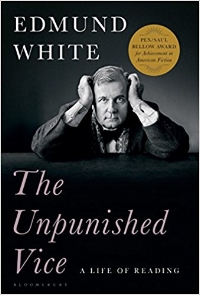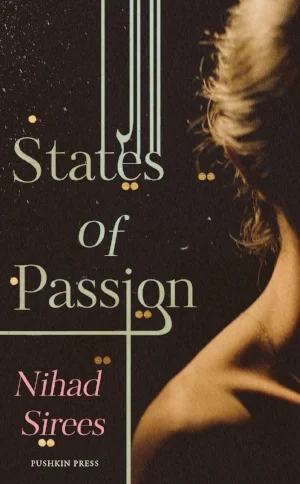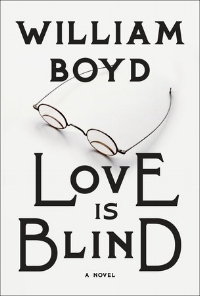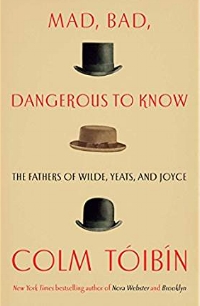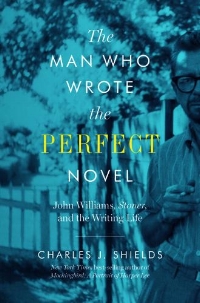Photo: Barcelona Book Market. Credit: Kevin Rabalais
Probably like you, we haven't yet made our way through the best books released in the first half of this year, but we're already looking forward to what's to come. Here are twenty-six novels and works of nonfiction at the top of our lists for the second half of 2018.
JULY
An Untouched House by Willem Frederik Hermans, Translated by David Colmer (Pushkin Press, July in UK; Archipelago Books, October in US)
This award-winning Dutch classic is now available in English. Set during World War II, the Red Army advances into Germany, where a partisan finds a seemingly abandoned house. While the surrounding landscape is decimated, the house sits pristine. What will happen if he poses as the true owner of the house as Nazis intent on reoccupying the town march in?
“As disturbing and powerful as anything by Joseph Heller or Kurt Vonnegut.” —Michel Faber
“A violent apotheosis without equal in modern literature. A sadistic universe that offers no room for escape.” —Cees Nooteboom
The Last Cruise by Kate Christensen (Doubleday)
In this latest from PEN/Faulkner winner Kate Christensen, a journalist turned farmer decides to take the final cruise of the 1950s ocean liner Queen Isabella. It’s a chance to leave behind modern technology—and children—to focus on the kind decadence aristocrats enjoyed yesteryear. But the vessel isn’t in the condition it should be to make the journey. Tensions grow among the crew. Everyone onboard is thrown into crisis.
“This sly novel from Christensen (winner of the Pen/Faulkner Award for The Great Man) begins as a casual romp and then heads inexorably into darker territory. The book steadily gains power as the boat loses its, and the portrayal of a small society on the edge of chaos is haunting. Christensen has crafted a Ship of Fools for an era of environmental concerns and social unrest.” —Publishers Weekly
Unpunished Vice by Edmund White (Bloomsbury)
Some find life’s extra beat through adventures of daring, but others look to books. Edmund White is one such man. Unpunished Vice blends literary criticism with memoir as White chronicles how certain books have marked his life’s most important moments. He read Remembrance of Things Past at boarding school and Ezra Pound’s poems as he followed a lover to New York. When heart surgery temporarily zapped his desire to read, he realized how important the activity had been in his life.
“A generous, lovely book about the profound effect of reading on a versatile and influential writer.” —Booklist
AUGUST
States of Passion by Nihad Sirees, Translated by Max Weiss (Pushkin Press)
Nihad Sirees, one of Syria’s most prominent writers today, now lives in exile in Egypt. His novel The Silence and the Roar is banned in his home country.
This new release follows a stranded Aleppo bureaucrat who seeks refuge in a remote mansion. There, he learns about Aleppo’s golden age of art, music and wealth—but also secrets and, with them, danger.
Now We Shall Be Entirely Free by Andrew Miller (Sceptre)
We love IMPAC Dublin winner Andrew Miller's novels, especially Ingenious Pain and Pure.
Returned from Britain’s defeat against Napoleon’s army in Spain, Captain John Lacroix is haunted by his failures and what he’s seen. He fears being drawn back into battle, little knowing that something more sinister awaits him.
“One of our most skillful chroniclers of the human heart and mind.” — Sunday Times
Clock Dance by Anne Tyler (Knopf)
The new novel from Pulitzer-winning Anne Tyler follows a woman whose life has hit major, discernible milestones: her mother's disappearance, a marriage proposal, the death of her husband. An unexpected phone call, and the stranger who reaches out, shifts everything, revealing an expected impulsivity. A story of second chances and second acts.
“A stellar addition to Tyler’s prodigious catalogue… A bittersweet, hope-filled look at two quirky families that have broken apart and are trying to find their way back to one another… The cast of sharply drawn characters dominates in ways both reflective and raucous across a series of emotional events.” —Publishers Weekly
Prague Spring by Simon Mawer (Penguin Random House, UK & Australia; Other Press paperback, US November 2018)
When two English students decide to hitchhike across Europe in 1968, they think it will be a grand, self-defining adventure. But when they cross into Czechoslovakia, their naiveté meets a clash of politics and danger. From the author of The Glass Room and The Girl Who Fell From the Sky.
"A cracking fictional tale set in a beautifully-researched (and very well-chosen) slice of history." —Readers Digest
SEPTEMBER
Transcription by Kate Atkinson (Little, Brown in US; Transworld in UK and Australia)
Atkinson returns with another rich story about London during the Second World War, reminiscent of her beloved Life After Life.
Juliet Armstrong finds herself recruited into an obscure department deep in MI5. At first, her tasks are simple. She must transcribe the (often-boring) conversations of British Fascist sympathizers infiltrated by agents. She quickly, though, proves herself reliable, adaptable and pliable, perfect attributes for more serious use by the agency. Forced to be complicit in actions she doesn't understand and cannot forget, she is irrevocably changed. A decade after her war service, a reckoning will force her hand.
“Atkinson never fails to take us beyond an individual’s circumstances to the achingly human, often-contradictory impulses within. And, as all of Atkinson’s readers know, she is an exquisite writer of prose, using language with startling precision whether she is plumbing an inner life, describing events of appalling violence, or displaying her characters’ wonderfully acerbic wit. Evoking such different but equally memorable works as Graham Greene’s The Human Factor (1978) and Margaret Drabble’s The Middle Ground (1980), this is a wonderful novel about making choices, failing to make them, and living, with some degree of grace, the lives our choices determine for us.” ―Booklist
Call Them By Their True Names: American Crises by Rebecca Solnit (Haymarket Books)
In her latest volume of thought-provoking essays, Rebecca Solnit faces the war at home, a war “with so many casualties that we should call it by its true name, this war with so many dead by police, by violent ex-husbands and partners and lovers, by people pursuing power and profit at the point of a gun or just shooting first and figuring out who they hit later.” She challenges many American crises while in search of solidarity and hope.
“Rebecca Solnit is the voice of the resistance.” —New York Times Magazine
Love Is Blind by William Boyd (Penguin Random House)
Set in fin-de-siècle Europe, Love Is Blind unfurls a forbidden triangle of desire, one that could destroy lives and careers. John Kilbarron, known as “the Irish Liszt,” requires the genius of his piano tuner, Brodie Moncur, and the company of his consort, the Russian soprano Lika Blum.
More and more fiercely, Brodie covets the beautiful, seductive Lika and is willing to give up everything for her love. But there are many secrets about which Brodie knows nothing.
Leadership in Turbulent Times by Doris Kearns Goodwin (Simon & Schuster)
Pulitzer Prize-winning presidential historian Doris Kearns Goodwin brings her many decades of research together to offer an examination of the leadership styles of four U.S. presidents. She focuses on the moments of doubt, fear and confusion surmounted by Abraham Lincoln, Theodore Roosevelt, Franklin Roosevelt and Lyndon Johnson.
[Ed. note: I heard Doris Kearns Goodwin speak about her new book at the American Library Association's annual conference in June. Her passion for rigorous thought, her ability to synthesize arguments, her love of learning and her open-eyed assessment of her subjects inspires hope for the future. The book is rousing and moving.]
“Four towering individuals... in a masterwork on how good leaders become great leaders, how burning personal ambition can be elevated into driving ambition for a cause greater than self. Riveting, uplifting, and incisive, Leadership is a culminating work of a true intellectual artist.” —Jim Collins, author of Good to Great
“Business students invariably ask me: ‘With what historical figure would you like to have lunch?’ Doris Kearns Goodwin has prepared a marvelous banquet with four leaders whose lives provide lessons for all of us. Pull up a chair.” —Warren Buffett
The Last Palace: Europe’s Turbulent Century in Five Lives and One Legendary House by Norman Eisen (Crown)
When Norman Eisen became U.S. ambassador to the Czech Republic, his posting allowed him to return to the region his mother had fled after the Holocaust. He moved into a palace that had been home to a wide range of people and ideologies, including the Jewish financial baron Otto Petschek, the man who built the home after World War I, and the German general who occupied it during World War II.
“Moving, engaging, and elegantly written, The Last Palace wears its erudition lightly, casts its radiant intelligence fearlessly into the darkest corners of the twentieth century and, effortlessly, reliably, breaks your heart again and again.” —Michael Chabon
French Exit by Patrick deWitt (Ecco, USA; Bloomsbury, UK and Australia)
A comedy — or tragedy — of manners from the hilarious author of The Sisters Brothers and Undermajordomo Minor. The setting: The Upper East Side. The cast of characters: a possessive mother/widow; her stunted adult son, Malcolm; the aging cat, Small Frank, who may embody the spirit of the late husband who died a gruesome, tabloid-titillating death. Change of setting: Paris, where the family flees poverty and social stigma. DeWitt’s novels always defy category. This one may be comedy, caper, farce, adventure, send-up, or some mixture of them all. We so look forward to this delight.
“French Exit made me so happy — I feel as if I have downed a third martini, stayed up past sunrise, and still woken up refreshed. Brilliant, addictive, funny and wise, deWitt’s latest has enough charm to last you long after you’ve put it down, which is what so many of us need in a book. I think you need it, too.” —Andrew Sean Greer, Pulitzer Prize-winning author of Less
Lake Success by Gary Shteyngart (Random House, USA; Hamish Hamilton, UK & Australia)
When hedge-fund manager Barry Cohen can’t take it anymore—he’s divorced, his son’s been diagnosed with autism, he’s being investigated by the SEC—he skips town. On a tour of the country via Greyhound bus, he searches for his college sweetheart, sanity and, possibly, a simpler life.
“This is a novel that seems to have been created in real time, reflecting with perfect comedy and horrible tragedy exactly what America feels like right this minute. As I read Lake Success, I barked with laughter, at the same time wincing in pain. Gary Shteyngart has held up a mirror to American culture that is so accurate, and so devastating, that it makes you want to break the mirror right over your own head. I mean this as a good thing. The novel is stupendous.” —Elizabeth Gilbert
“In Lake Success, Gary Shteyngart hears America perfectly: its fatuity, its poignant lament, its boisterous self-loathing. Its heartbeat. Reading him sometimes makes me want to scream—with recognition and with pure hilarity.”—Richard Ford
OCTOBER
Like a Sword Wound by Ahmet Altan, Translated by Brendan Freely and Yelda Turedi (Europa Editions)
Volume one of the Ottoman Quartet, Like a Sword Wound begins the saga that chronicles one of history's greatest empires. Following fifty years of Turkish history and with intrigue, war, betrayal and love as the backdrop, the novel allows us to witness the disintegration of an empire.
Calling to mind War and Peace, Like a Sword Wound brings to English-language readers one of Turkey's most important contemporary writers, one who has been arrested for his work as a journalist.
In Search of Lost Books: The Forgotten Stories of Eight Mythical Volumes by Giorgio Van Straten (Pushkin Press)
The director of the Italian Cultural Institute of New York takes readers on a journey through eight legendary lost books. He traces the infamous loss or theft of a Hemingway manuscript from the Gare du Lyon and the disappearance in wartime Poland of Bruno Schulz’s magnum opus, along with its author. He looks for a mythical Sylvia Plath novel and the memoirs of Lord Byron. Thrilling and poignant, In Search of Lost Books reminds us of the power and danger of the written word.
“Brilliant... a little masterpiece.” —Ian Sansom, The Guardian Books of the Year
“I read it all in a single, enchanted sitting.” —Bookseller Editor’s Choice
Berta Isla by Javier Marías (Hamish Hamilton, UK and Australia)
Young and in love in Madrid, Berta Isla and Tomás Nevinson vow to marry. But when Tomás, half-English and half-Spanish, leaves Berta to study at Oxford, he finds himself courted by a government agency. He tries to resist, but a mistake puts his life with Berta at risk.
“No one else, anywhere, is writing quite like this.” —Daily Telegraph
Unsheltered by Barbara Kingsolver (HarperCollins)
The author of The Poisonwood Bible, Flight Behavior and The Lacuna returns with another rich, provocative and enthralling novel.
Willa Knox suddenly realizes in middle age that she has little to show for her decades of hard work and sacrifice. Bills are stacking up, the house she inherited is falling apart, the magazine she writes for is dead, and the stability of her husband’s tenure crumbles when his university folds. If that’s not enough, her adult kids also flounder and continue to live with her. Her son, buried under college-debt and caring for his unplanned baby, looks to her for help.
Her life becomes entangled with the history of her town and her home, specifically a science teacher from the 1880s who championed the ideas of Charles Darwin and waged his own battles against cultural stagnation, financial problems and the needs of family.
Mad, Bad, Dangerous to Know: The Fathers of Wilde, Yeats and Joyce by Colm Toibin (Scribner)
In this work of nonfiction from the author of Brooklyn and The Master, we follow in the footsteps of the fathers of some of Ireland’s literary masters. Alongside personal stories and dives into Irish history and literature, Toibin explores the importance and the conflict of the paterfamilias.
“a short but entertaining, thoroughly engaging study on the agony of filial influence.” —Kirkus Reviews
The Man Who Wrote the Perfect Novel: John Williams, Stoner, and the Writing Life by Charles J. Shields (University of Texas Press)
John William’s Stoner has become a cult classic and a novel beloved by writers as wide-ranging as Colum McCann, Bret Easton Ellis, Ian McEwan and Emma Straub. But when it was published in 1965, it sold only a few thousand copies. This new biography by the author of Mockingbird: A Portrait of Harper Lee and And So It Goes: Kurt Vonnegut, A Life offers an in-depth look at the life and work of John Williams, as well as the resurgence of his novels. Stoner alone has now sold more than a million copies.
“Charles Shields’s biography of John Williams is every bit as impressive as his subject’s book, the not-so-underground classic (and international bestseller) Stoner, a gripping and compulsively readable tale of an ‘unremarkable man.’ Shields brilliantly recreates Williams’s outwardly ordinary life as an English professor eager to balance his scholarship with a creative writing career, revealing fascinating psychological depths in a man who on the surface doesn’t seem to have any. The reader is carried along by this masterful, finely honed biography.” —Mary V. Dearborn, author of Hemingway: A Biography
The Library Book by Susan Orlean (Simon & Schuster)
The author of The Orchid Thief returns with a book that’s both true-crime mystery and love letter. The Library Book takes us back to the morning of April 29, 1986, when the Los Angeles Public Library caught fire. It burned for more than seven hours, reaching temperatures up to 2,000 degrees. By the time firefighters had it under control, 400,000 books had been destroyed. More than 700,000 others were damaged. Orlean tackles the most pressing question: Who lit the fire?
“Mesmerizing . . . A riveting mix of true crime, history, biography, and immersion journalism… Probing, prismatic, witty, dramatic, and deeply appreciative, Orlean’s chronicle celebrates libraries as sanctuaries, community centers, and open universities run by people of commitment, compassion, creativity, and resilience.” —Booklist (starred review)
The Arsonist by Chloe Hooper (Hamish Hamilton, Australia)
On February 2009, the Black Saturday fires terrorized Australia’s Latrobe Valley. Chloe Hooper, novelist and author of the acclaimed nonfiction work The Tall Man, explores how a man deliberately started two fires, then sat back to watch them burn. His actions let to two deaths.
NOVEMBER
Dreamers: When the Writers Took Power, Germany 1918 by Volker Weidermann, Translated by Ruth Martin (Pushkin Press)
We’re very excited to see a new ultra-time-specific history from the author of Summer Before the Dark, the wonderful book on writers, including Stefan Zweig, Joseph Roth and Irmgard Keun, in the shadow of Hitler’s rise during a few months in Ostend.
This new one chronicles the overthrow of the monarchy in Bavaria at the end of World War I. Following the events of November 1918 through April 1919, Weidermann explores the roles of such writers and intellectuals as Thomas Mann, Rainer Maria Rilke and Kurt Eisner.
Paris Echo by Sebastian Faulks (Macmillan, November in US; Penguin Books, September in UK and Australia)
The author of Birdsong and Where My Heart Used to Beat returns to the legacy of war, this time following an American historian who returns to Paris to conduct research about the lives of French woman during the occupation. There, she also has better-forgotten memories of her own youthful mistakes.
She meets a Moroccan teenager looking for a fresh start and takes a chance on him as a boarder. Their questions—and the answers that find them—make each reconsider the course of their lives and what they’re willing to sacrifice.
“The most impressive novelist of his generation.” —Sunday Telegraph
Let’s Go (So We Can Get Back) by Jeff Tweedy (Dutton)
The songwriter, singer and guitarist best known for his role as the face of Wilco opens up about growing up in Illinois, making music in Chicago, collaborating, being a husband and father, and how his creative process works.
Jeff Tweedy is “one of the most daring songwriters of his generation” and his band Wilco is “vital, adventurous … breaking new stylistic ground with each ambitious and creatively restless album.” —Salon.com
DECEMBER
The Frolic of the Beasts by Yukio Mishima (Vintage)
This 1961 short novel by beloved Japanese author Mishima about a disastrous affair appears for the first time in English translation. A student, his would-be mentor and prominent literary critic, and the man’s wife form a love triangle that changes each of them profoundly. A psychological tale about seduction, identity and murder.
Do you love literary fiction? Do you want a glimpse into how it's created and what the literary life entails?
We think James Salter's words will inspire you.
“There came a time when I felt I was not going to be satisfied with life unless I could write. So I did what was essential for me, or else perhaps the most important part of me would have perished.”
The paperback edition of our Conversations with James Salter (University Press of Mississippi) was released in June. We hope you'll pick up a copy!
“To write? Because all this is going to vanish. The only thing left will be the prose and poems, the books, what is written down. Man was very fortunate to have invented the book. Without it the past would completely vanish, and we would be left with nothing, we would be naked on earth.”
James Salter, author of such classics A Sport and a Pastime, Light Years and Burning the Days, is a fascinating figure, one who lived many lives, as a fighter pilot, a filmmaker and screenwriter, a short story writer and novelist. He speaks eloquently, and sometimes with brash contrariness, about art, life, sexuality, memory, reinvention, literary success and loss. As in his fiction and essays, James Salter evokes the charm and grit of France and the creative process.
The collection includes interviews that span his career, some never before published in English. His words are thought-provoking, confronting and inspiring.
"Penetrating interviews over several decades that open the thinking and perspectives of the elegant and acutely gifted novelist, playwright and short story writer Jim Salter. His sensibilities invite deep introspection of how we connect as men and women, those who act and those who observe. Salter clearly lived life as an active participant and enthusiast. To read him, to hear his explication of his purpose, is to reinforce our appreciation for our individual passage through our own lives. Salter's objective, in his words, in writing was 'to enthrall the reader.' He succeeded." —Online reader review by Virgil Kane.
Reader at the St Kilda breakwater, Melbourne, Australia. Credit: Kevin Rabalais




